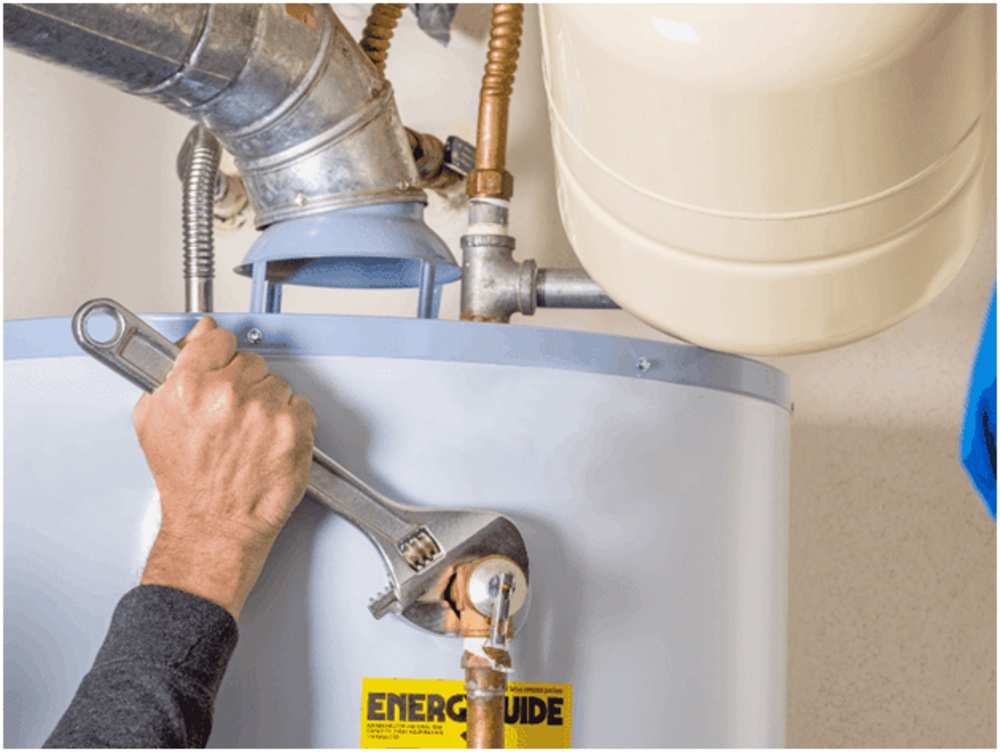A water heater is a great way to heat water for daily needs. They are usually located in the basement or outside and use natural gas or electricity to heat the water. According to Clayton's trusted plumbing company, water heaters don't last forever. Here are some signs that you may need to replace your water heater.

1. Old Water Heater
A water heater is not one of the things that last forever. A homeowner will eventually need to repair a water heater during the length of a typical home tenure. The issue is that most homes don't know when a water heater is about to expire. But when an old heater starts functioning poorly, ignoring it can result in serious risks.
How Long Can a Water Heater Last?
Most water heaters have a lifespan of eight to ten years. Even though it is the conventional guideline, a heater needs to be replaced after ten years.
Signs of Bad Water Pump
If a water heater exhibits any of the following signs, you must replace it beforehand:
- Either on the tank or in the water, rusting
- Noises/leaks
- Not heating the water
Not every water heater can last up to ten years. Gas water heaters are the main exception because they typically only last six to eight years. As a result, if you only live in a home for the typical seven to eight years, there's a good possibility you'll have to replace the water heater if it's gas-powered. Look at the serial number on the manufacturer's sticker, located on the upper side of the tank, to find out how old your water heater is.
2. Rusty Inlet Valve
Despite being the most durable material known to man, rust is a vulnerability of steel. When corrosion attaches to a steel surface, it progressively spreads and eats through the steel. Rust is an early indicator of impending leaks on steel water pipes and storage tanks.
The problem is that it can frequently be tricky to distinguish between rust caused due to the water heater itself and the pipes leading to your faucet. Rust, in any event, is an urgent issue that must get resolved for the sanitation of your home.
Rusty Water
You probably have a rusty water heater if rust forms in hot water from your sink and bathtub faucets. Rust is a given on heaters used past their sell-by date. Any water heater, even those only eight to ten years old, is susceptible to rusting.
Rusty Valve
Rust is likely to present inside the heater's tank if you notice it around the water inlet or pressure release valve. If so, the only course of action is to swap out the tank as quickly as feasible. Once rust appears, the old water heater can no longer be saved.
Rusty Pipes
It may also be a problem with the pipes if the tap water is rusty. If your plumbing system is made of galvanised pipes, rust may develop on the insides over time. In some cases, the issue can grow so severe that it can be seen in sinks and bathtubs.
3. Water Heater Noise
Noise from the tank is another warning sign of a failing water heater. As the heater gets older, the rumbling sounds from the water heating tank will get louder and louder. Once the cause takes hold, the issue will probably get even worse in households that use hot water. The following factor typically contributes to water heater noise:
Sediment Buildup
Because of repeated heating and reheating of the water, sediment accumulates in the bottom of an old water heater. Along the tank floor, the silt gradually becomes thicker. Sediment can quickly degrade a water heater and cause the following issues:
- Inefficiency
- Accelerated Damage
The following technique can get used to stopping the harm that sediment causes:
Flush Water
Your water heater's tank needs to be flushed once a year. By doing this, the silt in the tank gets drained, allowing it to operate more effectively. A water heater may last ten years of its expected lifespan with a yearly tank flush. It's preferable to have qualified plumbers in Clayton do the flushing.
After flushing out sediment, if a tank still makes noise, there is likely a more severe issue with the water heater. Anyhow, noise-free water heaters shouldn't creak or rumble. Despite routine flushing, heaters that still make noise are probably about to crack or leak. So they must get replaced as soon as possible.
4. Leaking Water Heater
You are more likely to see water on the floor surrounding the tank as your water heater gets closer to the end of its useful life. Water usually indicates leaks when it is present. A leak could cause severe property damage depending on the location of your water heater inside your home. Therefore, a significant leak from your water heater would be the most hazardous issue that could ever arise.
Major Reason for Leaking Water Heater
Expansions to the metal in the tank often cause water leaks. As the inner body of the tank gets exposed to countless millions of heating cycles, these expansions take place over time. When a fracture first develops, the gap is probably small enough to support water in all but the most tricky conditions. Water won't leak from the tank when it is not in use, but less water will inevitably seep through the crack when the metal expands during each heating cycle.
Risks
One of the most severe home maintenance problems you might encounter while residing in a property is a leak in your water heater. If the heater is on the ground floor of your home, a leak could have the following effects:
- Soaked or damaged carpet
- Items soaked or ruined, like antique furniture and Electronics.
- The mould that develops as a result of rotting water absorbing into carpeting, walls, and floors
Therefore, if the water heater is on the ground floor of your home, you should have it replaced very away. If the heater is in your basement or garage and there are no expensive items close by, a little leak might not be as urgent, but you should still take action as quickly as possible.
5. Slow Water Heating
One of the most crucial domestic essentials is warm, hot water. Without warm water you cannot wash your hands, take showers, clean your dishes, or use your washing machine. Since most people take warm water for granted, it throws them off balance when the water in the sink or bathtub isn't warm enough.
One of three potential problems with your water heater could be the cause of the heat loss in your water supply:
- An incorrectly set thermostat
- Defective heating element
- A tank that is inadequate for your home's size
Call Professionals: Doyle Plumbing Group
Although a water heater is a great appliance in your home, they don't last forever. If you think your water heater may need to be replaced, keep an eye out for these signs. Apart from the signs mentioned above, you may also look for minor signs like temperature fluctuations, difficulty igniting, and strange noises that indicate it's time for a new water heater. If you have any concerns about your water heater, contact a professional for help.
Doyle Plumbing Group is Clayton's trusted plumbing company. The professional plumbers in Clayton are the best for replacing and installing new water heaters. Find out more about the water heater installation services at 0499 499 678.


No comments yet